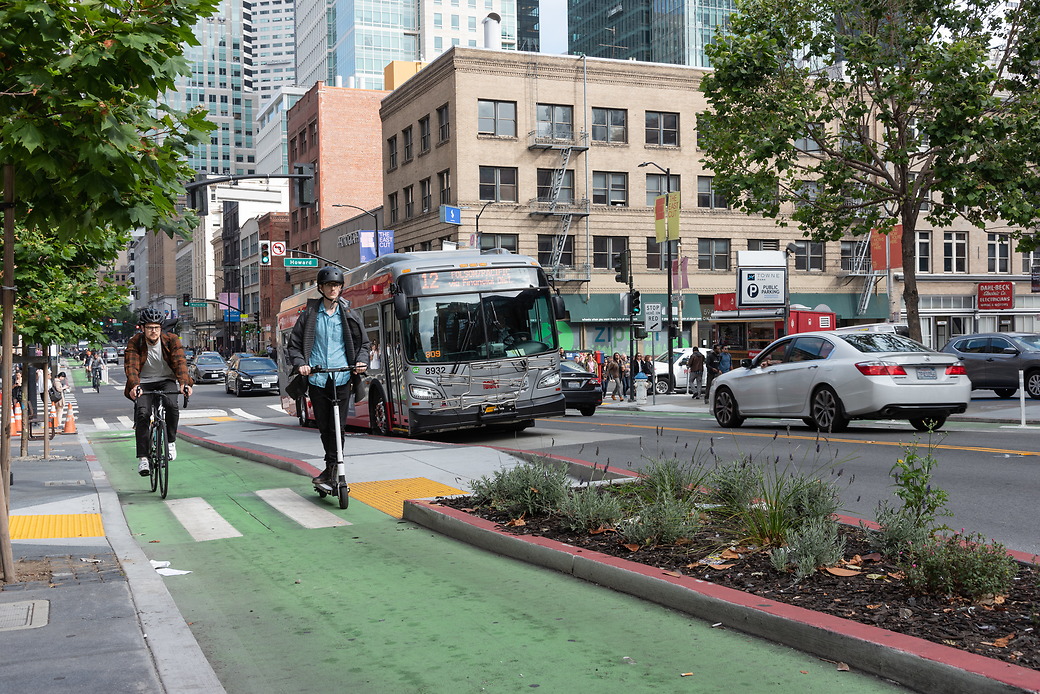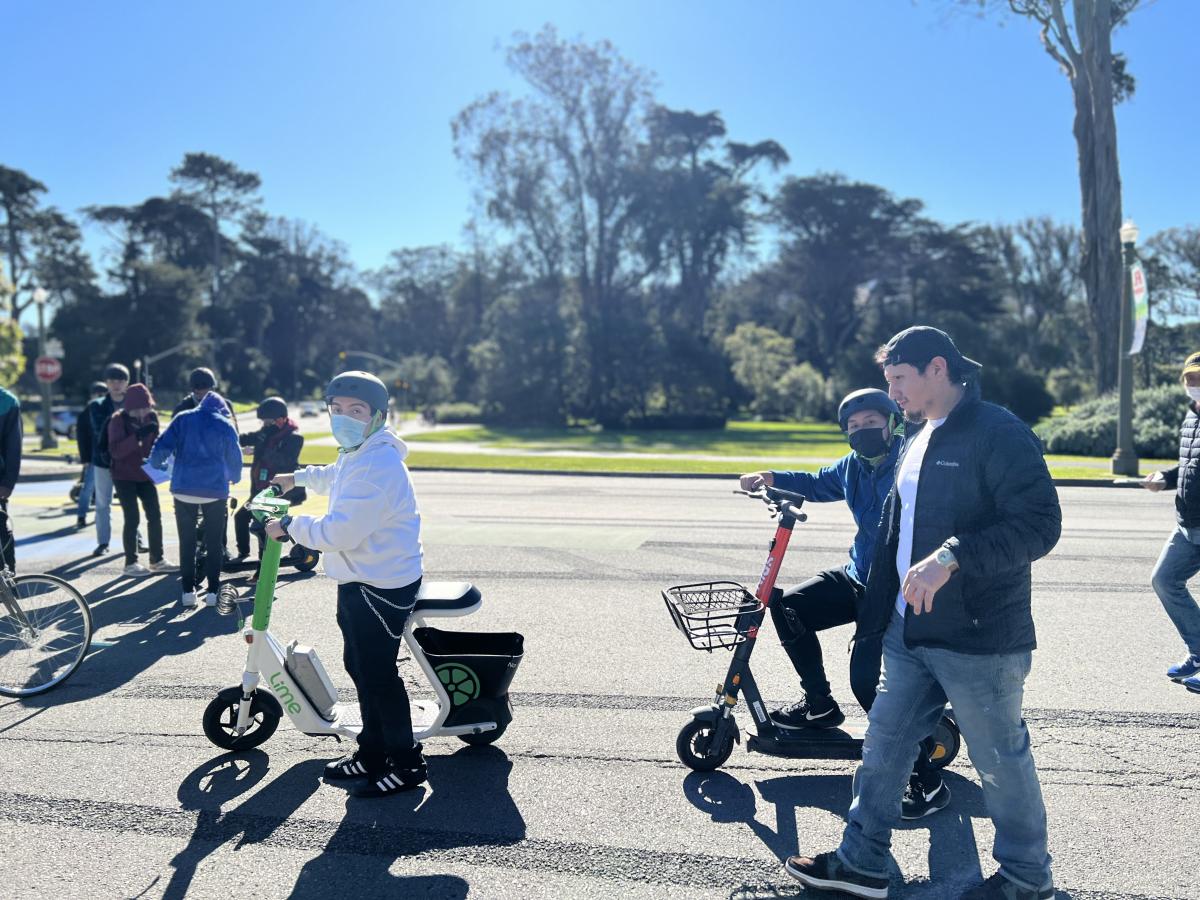
Scooters are an important part of San Francisco’s multimodal transportation network.
We’re excited to open applications for the FY2025 – FY2026 Powered Scooter Share Program. This program supports the city’s goal of providing multiple reliable transportation options to get around San Francisco.
The current permits for scooter share operators expire in June 2024. The next round will go into effect on July 1, 2024.
For operators who want to apply to the Powered Scooter Share program:
-
See the FY2025 – FY2026 Powered Scooter Share Program webpage for application materials.
-
Check out the bottom of this blog for a section with more details about the process.
Scooter program successes: how your feedback helped
Over the past several years, we have reached out to stakeholders in a variety of ways to gather feedback on our shared scooter program.
There have been concerns about sidewalk riding and improper scooter parking. These included cases where scooters block the path of travel for people walking or using mobility devices. We also heard feedback about the need for better adaptive scooter options.
We considered this community feedback and have revised our application process. We’ve made improvements in the following areas.
Scooter safety
We launched campaigns and changed policies to protect people who walk, roll and take transit.
-
Educational campaign
Our educational campaign is aimed at people who ride shared scooters and/or privately-owned ones. This campaign includes information about how to ride safely. See our scooter safety campaign blog for details.
-
Safe parking incentive policy
We also thought deeply about incentives that might inspire safer behavior. We instituted an incentive program that motivates scooter companies to move improperly parked scooters quickly. If scooter companies respond faster to complaints of improperly parked scooters, the fines they face are reduced. This has resulted in huge wins for safety.
The average response time to complaints of improperly parked devices dropped from six hours to one hour.
See the Safe Micromobility Parking Policy webpage for more information.
-
Sidewalk detection technology
Our transportation code now requires that all shared scooter devices have sidewalk detection technology. This technology slows down shared scooters if riders use them on the sidewalk. The scooters emit an audible alert, and the scooter share companies are required to send us a monthly report of sidewalk riding.
This helps us understand where sidewalk riding happens most frequently, so we can send our enforcement team to those hotspots.
 Students from AccessSFUSD test adaptive scooters in Golden Gate Park.
Students from AccessSFUSD test adaptive scooters in Golden Gate Park.
Scooter accessibility
We have received extensive feedback on our adaptive scooter programs. We did this by holding events in partnership with AccessSFUSD and scooter share companies and by soliciting feedback from the Multimodal Accessibility Advisory Committee and the Mayor’s Disability Council.
For more information, see our blog on partnering with AccessSFUSD. You can also check out our blog highlighting an adaptive scooter event with our current permittees.
-
Prioritizing adaptive devices
We’re prioritizing more seated devices and those with greater stability. This can include devices with larger wheels, backrests, floorboards, and other adaptive features. Continuing a requirement from the current permit cycle, all scooter operators in our program will have to offer seated scooters as part of their on-street fleets.
We are continuing our separate Adaptive Scooter Program, as well. The program includes new requirements based on community feedback to increase usability, such as extending required rental hours so that adaptive scooters can more easily be used for commuting.
Scooter affordability
We’re ensuring that people of all income levels can benefit from our shared scooter program.
For shared scooter riders with incomes at or below 200% of the federal poverty guidelines:
We require all scooter share permittees to offer low-income plans that waive any applicable scooter deposit. They must also offer a minimum of 50% discount off rental fees or unlimited trips under 30 minutes. Additionally, they must provide a cash payment option.
Want to provide feedback?
We encourage you to tell us what you think of these improvements and continue giving us feedback. To get in touch about the shared scooter program, you can email ScooterShare@SFMTA.com.
About the Application
If you’re interested in applying to become an operator in our shared scooter program:
The deadline to apply is Wednesday, May 1, 2024 by 5pm.
We will hold a Question on & Answer session on Friday, April 12 at 2p.m. Applicants must submit questions in writing to ScooterShare@SFMTA.com by Friday, April 5 at 5p.m.
Applications will be evaluated against a standardized evaluation scorecard to determine the strongest proposals. We expect to issue new scooter permits to applicants that meet San Francisco’s high standards for safety, equity, accessibility and accountability.
We anticipate announcing successful applicants later this spring, and the new two-year permits will take effect on July 1, 2024.